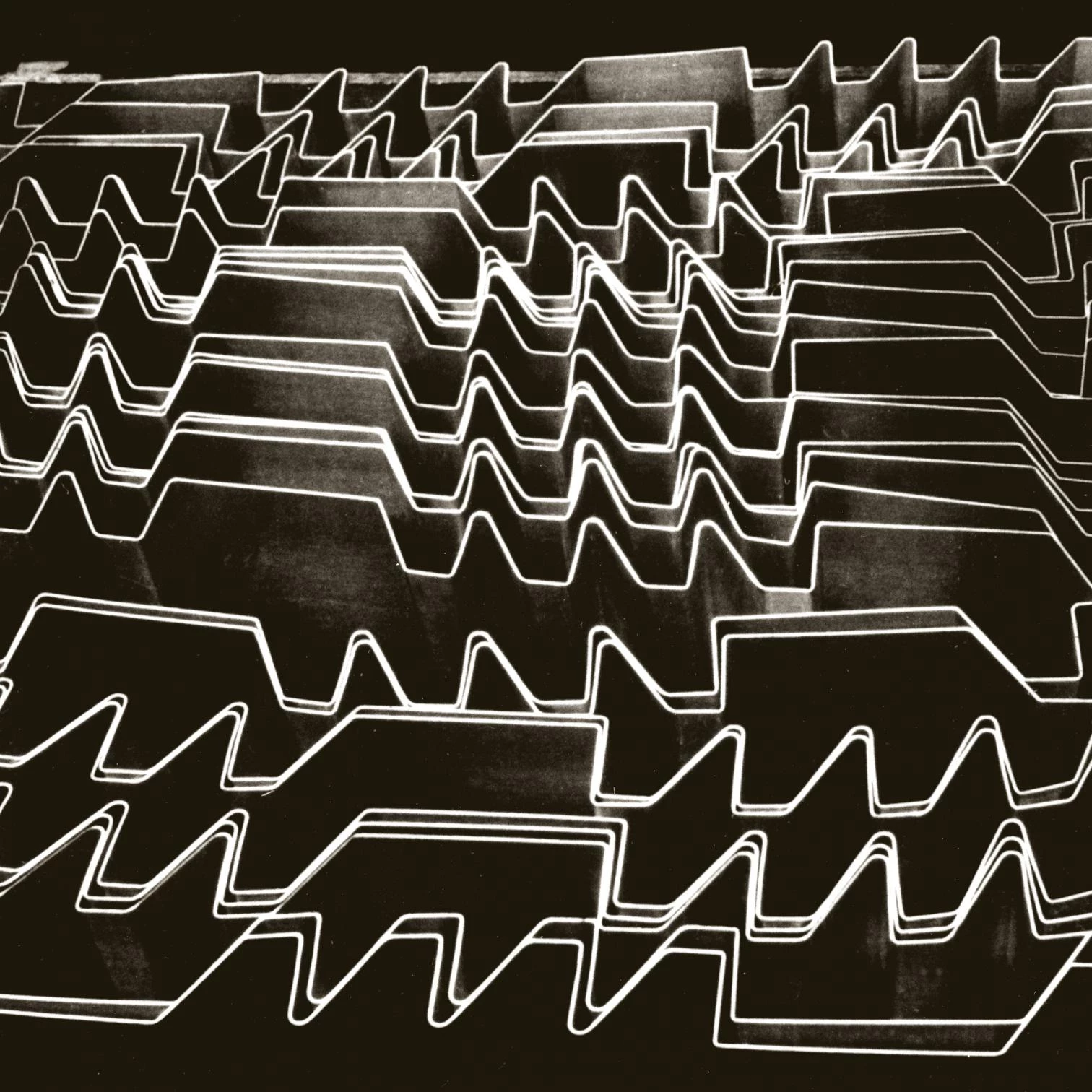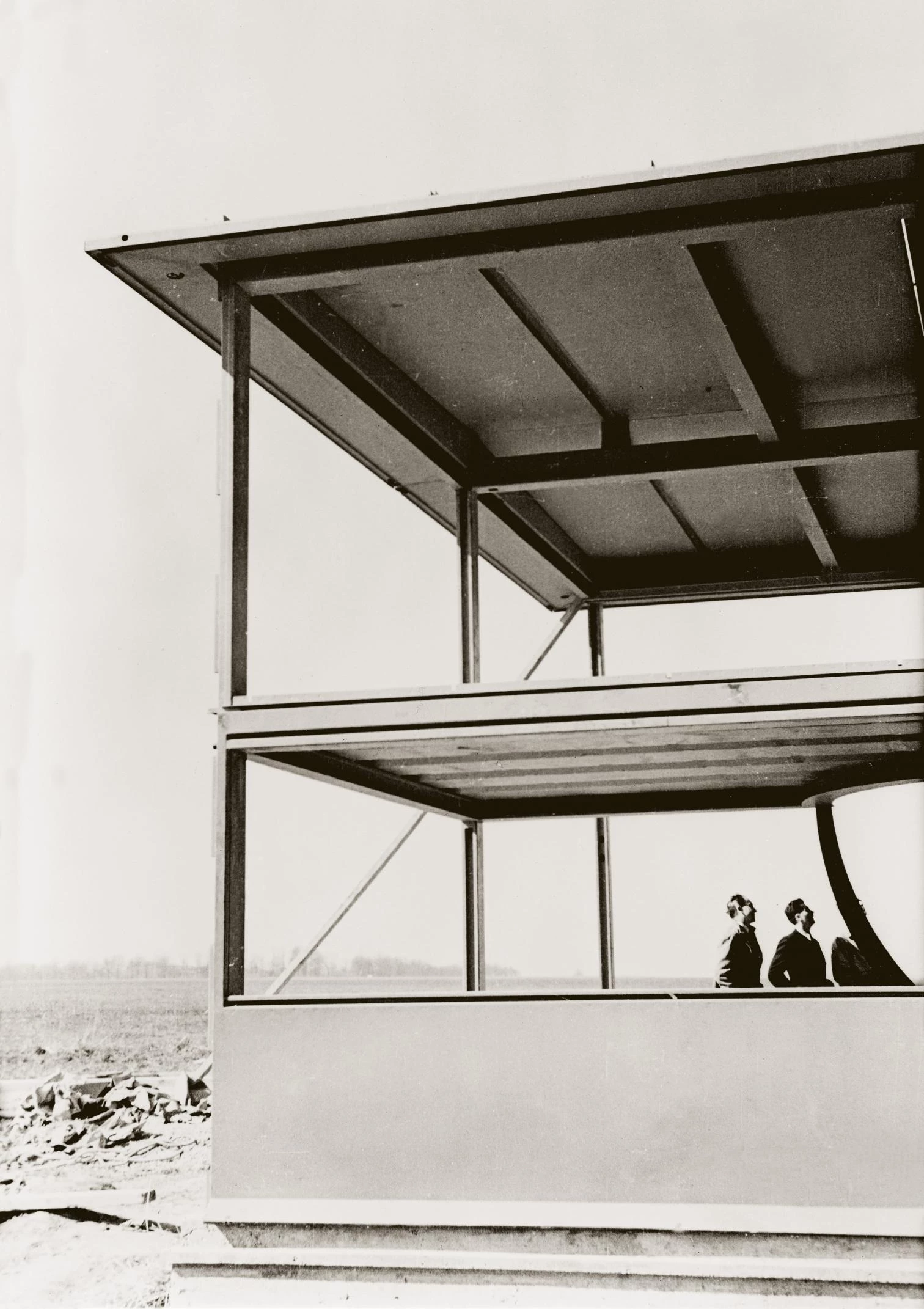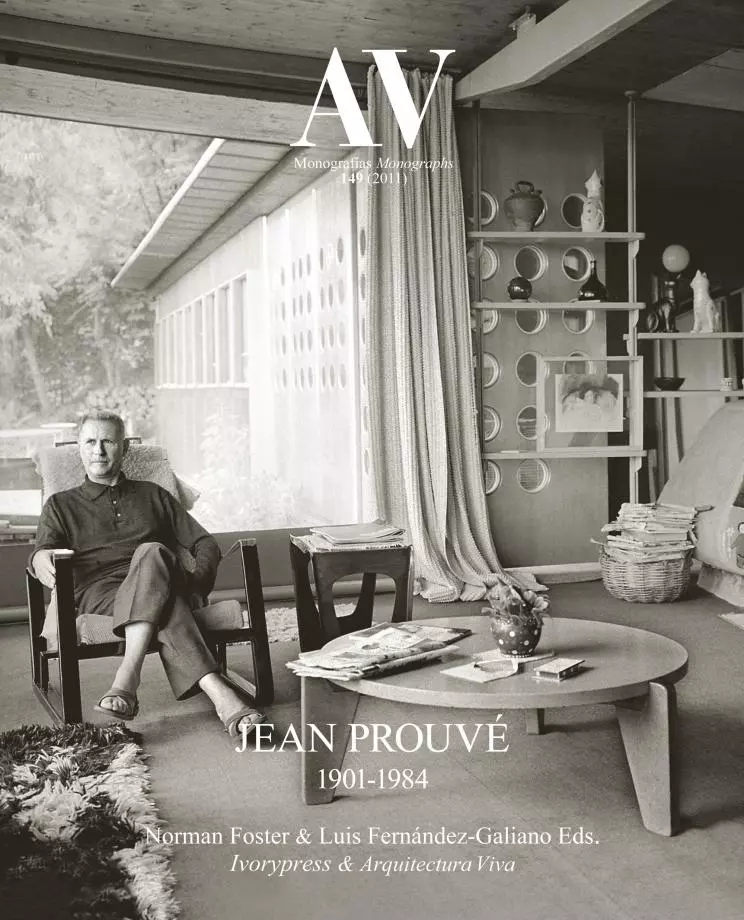
Jean Prouvé (1901-1984) is a key figure of 20th century architecture and design. From his early production of wrought ironworks for buildings and metal furniture pieces, up to his late work in the development of the curtain wall and grid structures, the French craftsman and manufacturer devoted his creative talent to reconciling art and industry. Associated to the most important architects and engineers of his time, Prouvé thought of himself as a builder, and his inventive skill is shown in buildings such as the Roland Garros Aéro-Club, the Maison du Peuple in Clichy, the Aluminum Pavilion or the Pump Room of Évian: in all of them technical imagination is placed at the service of function and economy, establishing a seamless continuity between the manufacturing processes and construction on site.
Trained in close contact with materials, Prouvé tried to blur the limits between project and construction, understanding that design – be it that of a chair or that of a structural element – could not be separated from the making and testing of prototypes in the factory. Like Buckminster Fuller, he dreamt about becoming the Henry Ford of housing, applying the car industry methods to residential construction; and just like the American visionary, his proposals were ahead of his time. That interrupted adventure left behind the 6x6 emergency shelters, the Standard houses, the Maison Tropicale or the house prototype for the Abbé Pierre; extraordinary prefabrication experiments whose lessons were also applied to singular works like his own home in Nancy or the Seynave residence in the Côte d’Azur.
Along his vital itinerary, Prouvé developed his own structural alphabet and transformed the way facades are conceived, but perhaps his most relevant contribution are the new uses found for his favorite material, folded sheet, in architecture or in furniture. Faithful to his ethic of connecting needs and means, he extended his constructive convictions to the communitarian organization of his workshops and factories, and even to the civic commitment of his affiliation to the Resistance during German occupation, which would make him Mayor of Nancy after the Liberation. But that ethic of need, expressed in his works by the precise adjustment of form and stress, was always nuanced by aesthetic intuition, which gives an artistic dimension to objects conceived within the context of industry, thus transformed into fine examples of industrial beauty.






